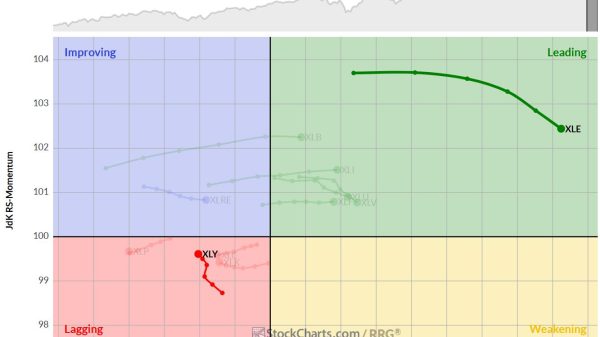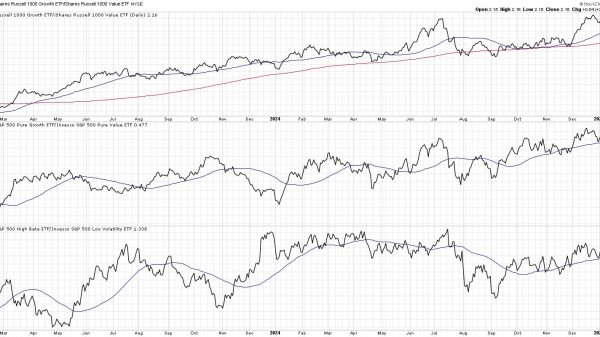In late March, the Texas Permanent School Fund (TPSF), a perpetual fund established to support Texas public schools, announced it was pulling $8.5 billion from BlackRock. The TPSF pulled this money because the asset manager was using investor funds to push Environmental, Social, and Governance (ESG) practices by boycotting fossil fuel and energy companies. While BlackRock holds some shares in fossil fuel companies such as ExxonMobil, Philips 66, Occidental Petroleum, and Valero Energy in its massive portfolio, over the past several years the company has called for “Sustainability as BlackRock’s New Standard for Investing.” That means it actively encourages other companies it owns shares in, such as large financial and insurance firms, to shift away from fossil fuels. Hence the 2021 Texas law requiring state agencies to divest from companies that “shed investments to reduce greenhouse gas emissions,” which TPSF cites in its letter to Blackrock.
But even though the TPSF has pulled funds from Blackrock, if they follow the advice of “proxy advisory firms,” such as Institutional Shareholder Services (ISS) or Glass Lewis & Co (Glass Lewis), then TPSF funds will still be used to push ESG. Proxy advisory firms take on the search cost of making an informed shareholder vote and supposedly act in the best interest of the investor. By recommending that shareholders vote for proposals and board members committing to reducing emissions, implementing diversity, equity, and inclusion (DEI) policies, and other politicized ideals, proxy advisory firms demonstrate that the best interests of the investors are a low priority.
Pursuing ESG priorities allows asset managers to put their own political crusades ahead of the interests of shareholders. And who are the shareholders? Not the Gordon Gecko ESG advocates portray, but ordinary men and women. The TPSF manages funds designated for education on behalf of Texas taxpayers. If the funds have lower returns because of asset managers’ ESG crusades, Texas taxpayers are on the hook.
A litany of evidence shows that funds using ESG investing strategies perform worse than funds without these strategies. ESG investing fails because the political constraints prevent investors from purchasing otherwise profitable investments, and from having greater diversification, which leaves millions of dollars on the table.
Previous claims that ESG can be profitable have been thoroughly debunked. In 2022, an MIT study found “widespread and repeated” changes in historical ESG scores without explanation. Studies that claimed ESG practices make companies more profitable, showed that often profitable companies were looking for ways to signal their success and landed on trying to get a good ESG rating.
As Paul has discussed extensively elsewhere, ESG advocates often use high-pressure tactics to persuade a few key people to sign onto their agenda or shame them into complying. Furthermore, ESG criteria create a world with less achievement and greater conflict, and which sacrifices individual rights for the sake of the “collective good.”
TPSF parting ways with BlackRock sends a clear message that Texas taxpayers do not want to pay for ESG priorities. BlackRock officials denied that these funds were being used to push ESG, but that has not assuaged the TPSF’s concerns, citing BlackRock’s “dominant and persistent leadership in the ESG movement.”
Although BlackRock CEO Larry Fink has disavowed terms like ESG or DEI, Blackrock will not necessarily stop engaging in social activist investing. Instead, they will change the branding to less politically unpopular terms like “sustainable,” or “responsible” investing.
ESG initiatives are still being pushed through proxy advisory firms. Two firms dominate this field: ISS (the largest proxy advisory firm) and Glass Lewis. Huge numbers of investors rely on these firms’ recommendations and “robovote,” meaning they follow a proxy advisor’s recommendations without any independent review. A report from the Manhattan Institute found that 86 percent of robovoting investors used ISS while 14 percent used Glass Lewis. The root of proxy advisory power comes from a 2003 SEC rule requiring investment funds to publish their votes. To maintain compliance with SEC regulations, these firms were incentivized to “outsource” their votes to proxy firms. In 2020, the SEC issued a rule that applied public filing requirements, other documents, and anti-fraud provisions (including the ability to sue proxy advisors) would apply to proxy advisory firms, drawing a lawsuit from ISS. In 2022, key portions of the rule were repealed by the SEC to assuage proxy firms’ concerns. SEC Commissioner Hester Peirce noted that these rapid changes would damage the commission’s credibility and make people wonder if they are responding to “political rather than market signals.” In February 2024, the US District Court for the District of Columbia ruled in favor of ISS, stating that the 2022 partial repeal was insufficient and the SEC’s authority over the matter was invalid.
For example, in 2021 ISS proxy voting guidance led the Employees’ Retirement System of Texas (owning 1.519 million shares) and the Teacher Retirement System of Texas (owning 871,536 shares) to vote their shares in favor of placing ESG advocates, who want to reduce fossil fuel development and use, in three of the four open board positions at Exxon-Mobil — the largest fossil fuel company in the world. Owning such large share amounts meant that the Texas funds had a significant amount of voting power.
The fund managers in Texas only realized what had occurred after the votes had been cast. Had the fund managers known and made changes to the shareholder votes, the outcome of the ExxonMobil Board Elections probably would have been different. This issue spurred the 2021 law that pushed Texas agencies to divest from asset managers pushing ESG.
The clear solution to the proxy advisory firm problem comes from greater competition. Removing barriers to entry allows additional proxy advisory firms to offer alternatives that focus solely on financial factors, and would force ISS and Glass Lewis to reconsider their positions to remain competitive. In addition, regulations on firm voting can be reformed to decrease dependence on proxy firms. Further, state funds can also require asset managers and proxy advisory firms alike to act solely in the financial interest of the fund and prohibit the use of “non-pecuniary” factors.
While we hope the TPSF no longer robovotes its shareholder proxies, state and local funds and private wealth managers still do. Pulling money from asset managers who put environmental, social, and governance goals over the interests of their clients is a good start. But until the proxy advisory firms change their priorities, or become less relevant, shareholders will find that their votes are being used to push ESG without their consent.

































